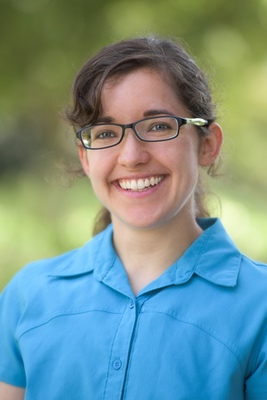
Rachel Furey
Creative Nonfiction
Rachel Furey is an Assistant Professor at Southern Connecticut State University. She earned her PhD from Texas Tech. Her work has appeared in Crab Orchard Review, Sycamore Review, Hunger Mountain, Briar Cliff Review, and elsewhere.
Twenty-Nine
When the doctor asks if I’ve been around any chemicals, if I might be completing my doctorate in chemistry, I’m adamant: “I’m in English. We read books.” I squirm in my seat. I’m sixteen again, in chemistry class, palms sweating as I attempt to light the Bunsen burner.
The doctor glances up from his computer screen. I now have the answer to his question about what the rash feels like. It feels like my childhood nightmares—flames licking at my skin. He clicks the mouse, then says it’s time to see the rash.
I stand, lift my T-shirt, reveal the red pattern that grips my waist. I’m twelve and having a scoliosis examination in the too-warm office of my physical education teacher. I’m nine, ten, and eleven with bronchitis, the doctor’s cold stethoscope pressed to my chest, wheezes wincing from my throat.
The doctor snaps on gloves. “Have you had chickenpox?”
I’m five, Mom lifting my shirt to show Dad the lumps. “Yes.”
“It’s shingles,” the doctor says.
The commercials suggest I must be at least sixty. I’m four and want to cry. I’m seventeen and want to scream. I’m twenty-nine and so tired I simply sit back down.
The doctor asks about my studies—about added stress.
I’m five and cannot tell my parents my swollen lip came from a game of duck-duck-goose. I’m thirteen and cannot tell Mom my period came for the first time. I mumble family stuff, which means Grandpa died, then Uncle died, which reminded me how easily my parents could die.
I collect the prescription, then bike back to my apartment, the West Texas wind kicking up dirt that slips under my sunglasses. My legs pedal, freed from the tight gray examining room. I’m fourteen and just learned the gift of wind in my face, a vehicle powered and steered by myself.
The fields I bike past are brown—capable of crackling. I pedal more quickly.
At the bottom of the stairs leading up to my apartment, I’m six wishing Dad just drove me home, sees me asleep and will carry me inside. I lift my bike, careful not to rub it against the rash, and heft it up the stairs. I’m twenty, lifting my bike onto the car rack, readying for my first solo drive with my bike in tow.
Inside, I swallow medicine, then climb into bed, curl up like I’m one. The rash burns. I’m five, Mom telling me I must learn how to get back to sleep after a nightmare, that she cannot sit beside me each hour of every night. I’m seven, kicking my light-up shoes in the dark of the auditorium to avoid seeing images of burnt skin on the big screen, firemen telling us we must know our escape route.
Tumbleweeds roll outside my window. A hot wind howls.
I grip my sheets. I’m two and can cry as much as I want. I’m three and in preschool for the first time, hugging Dad’s leg. I’m eight and want to be a firefighter because my teachers say you should face your fears. I’m twelve and waiting for Comet Hale Bopp to tear across the sky so I can admire flame from afar. I’m fifteen and Mom says I must practice lighting a match.
I peek at the rash.
I’m eighteen, lighting a match comfortably for the first time. Still understanding I don’t control the flame. Still wary of the candle at our dinner table. I’m nineteen and funneling down my dorm’s thirteen floors as the fire alarm roars, fingers poked into my ears, sure I might faint. I’m twenty-one and graduating from college, twenty-two and mapping out my escape route in my new apartment. At twenty-five, the window’s an arm’s length from my bed—the route clear. Then I’m twenty-seven and the fire danger’s so high there aren’t fireworks on the fourth.
My fingers hover above the rash. I’m five and my teacher wants me to press a hand to a cardboard door, practice checking for fire on the other side. I refused.
“ I’ve long admired Sandra Cisneros’ story 'Eleven.' We carry our past selves with us. After many drafts of essays about my experience with shingles, I realized acknowledging those past selves was the best way to capture the moment. ”
